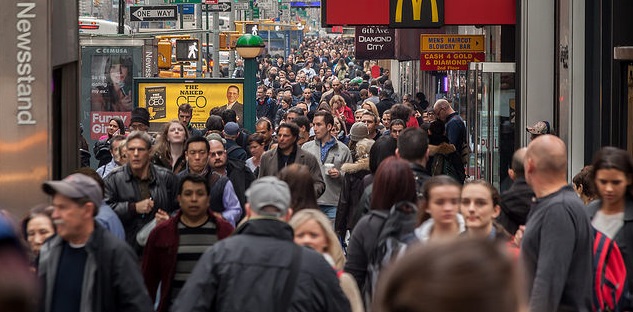Future of Work: Utopia or Dystopia?
There’s a lot of discussion in every media outlet right now about the impact of Artificial Intelligence, Machine Learning, Robotics, and over-automation. The Economist has an article titled Basically Flawed, Rethinking the Welfare State:
WORK is one of society’s most important institutions. It is the main mechanism through which spending power is allocated. It provides people with meaning, structure and identity. Yet work is a less generous, and less certain, provider of these benefits than it once was. Since 2000 economic growth across the rich world has failed to generate decent pay increases for most workers. Now there is growing fear of a more fundamental threat to the world of work: the possibility that new technologies, from machine learning to driverless cars, will cause havoc to employment.
There are two schools of thought on the subject, though.
The Utopians believe that society will become incredibly productive and rich without human beings having to do very much. Robots will do all the work. For humans, work will become optional. Infinite leisure will then enhance quality of life dramatically. A Universal Basic Income will provide livelihood to everyone. Society will become free of poverty.
The Dystopians believe that automation will eliminate jobs by the tens of millions. Fortune will become (further) concentrated at the tip of the pyramid. Inequality will wreak havoc with society. Governments will not be able to afford enough welfare budget to sustain the have-nots which will be most of the population.
Whichever reality unfolds, though, we do have some time in hand. The kind of mass scale automation that may eventually come about is still 50-100 years away, most likely. It takes a long time for technology to be developed, and then even longer for industry and society to adopt it. So, even if driverless car technology is within reach, it will be quite some time before these cars become legal on global streets.
Besides, there may be new kinds of jobs that will provide new kinds of employment that will offset some of society’s woes.
However, there is a very high probability that massive degrees of automation WILL eventually come about. Huge displacement of workers WILL take place due to such automation. Given that eventuality, are we facing Utopia or Dystopia?
My prediction, unfortunately, is the latter. Here’s why.
First, Universal Basic Income is extraordinarily expensive. If 1% of a 10 billion world population “works” and “earns”, then 99% has to be put on welfare. At $10k a year, that is close to a thousand trillion dollar budget. How on earth will society become rich enough to afford that? I don’t see it.
Second, this notion of infinite leisure is a flawed vision of utopia. Human beings are in a much healthier mental state when they work. Waking up in the morning is easier when a structured day is planned ahead, and not left to your own imagination on an ongoing basis. Few people are creative enough not to default to doing nothing, watching television, and becoming zombies. Zombies without meaning and purpose tend not be in great mental health either. Depression is common among people who are bored. Identity tends to be more robust around work and striving for something, than anything else.
So the Utopia based on Universal Basic Income is not financially viable. And even if it were, it would turn our species into vegetables. Not my idea of utopia.
The more likely dystopian scenario is one of rampant inequality, social unrest, and possibly a Darwinian conclusion.
Photo credit: Kevin Case/Flickr.com.
Featured Videos
Can 1M/1M Help Me Raise Money?
How Does 1M/1M Democratize Entrepreneurship Education?
How Does 1M/1M Democratize Management Consulting?
When Is The Right Time To Join 1M/1M?
Can 1M/1M Help Me With Business Development?
Can 1M/1M Help Me With Market Sizing?
Can 1M/1M Help Me Validate My Product?
Will I Have Private 1-on-1 Sessions In 1M/1M?
How Does 1M/1M Help Entrepreneurs Connect With Silicon Valley?
Mentoring or Consulting?
Why Does 1M/1M Charge $1000 a Year?
Why Does 1M/1M Partner With Local Organizations?
Why Don\’t Mentoring Networks Work?
Why Is It Important To Study With 1M/1M Now?
Dan Stewart Story
Vikrant Mathur Story

